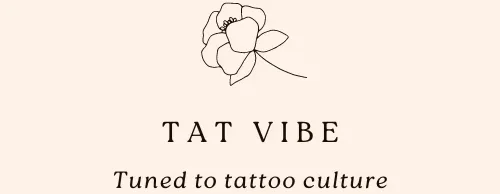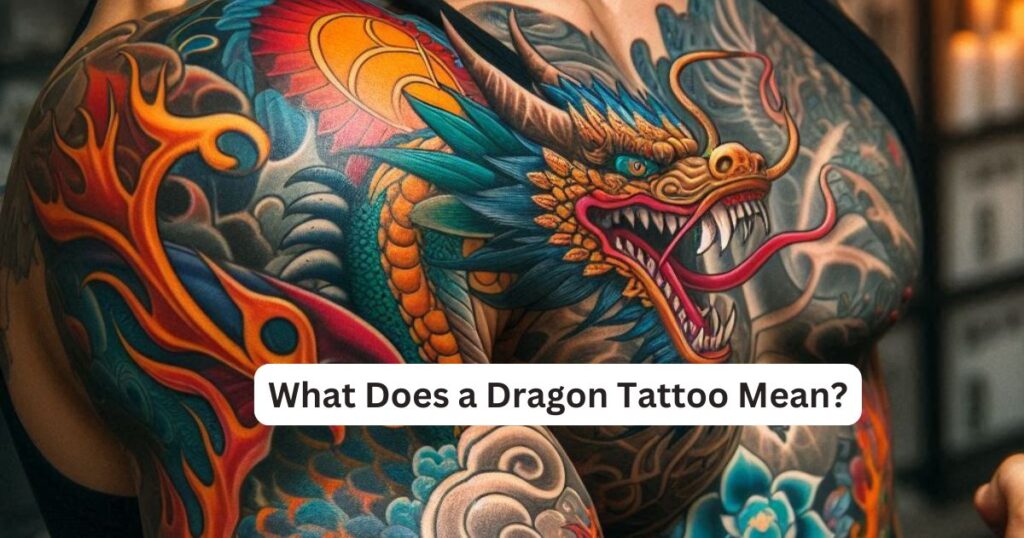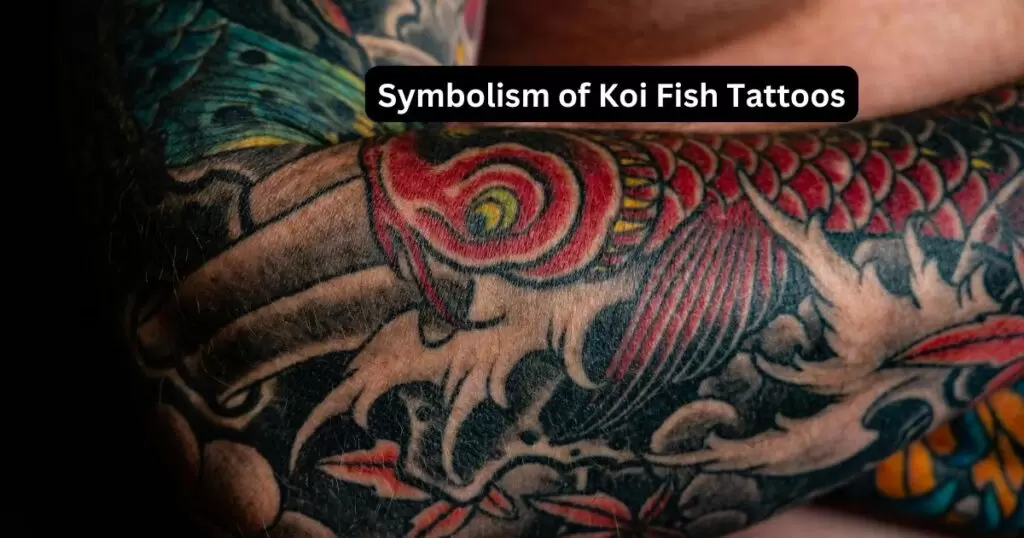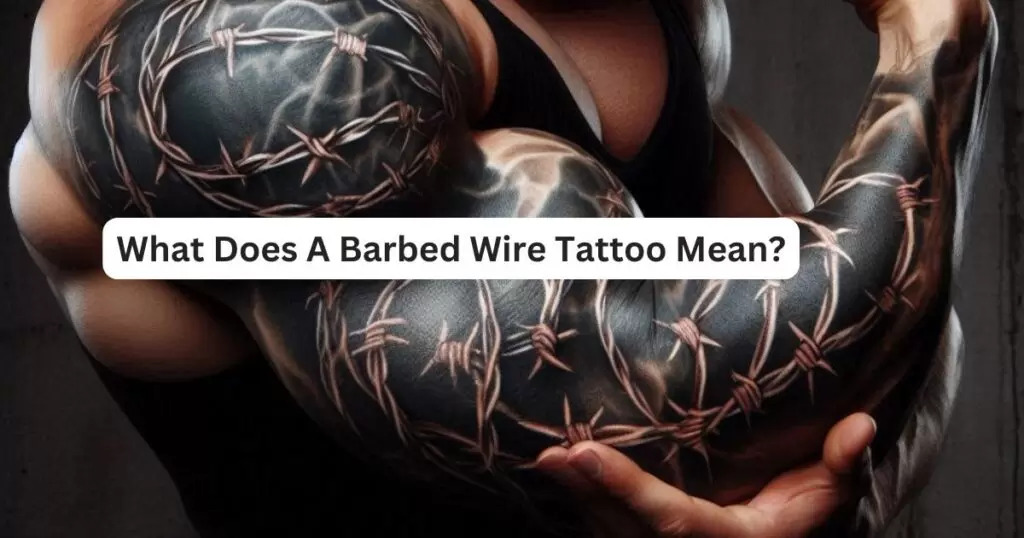A dragon tattoo means power, wisdom, and protection. For centuries, dragons have fascinated people in many cultures. Their symbolism varies across different regions, but they are often seen as strong and mystical creatures.
In tattoo art, the dragon has become a popular design with deep meanings attached to it. Understanding these meanings can help you decide if a dragon tattoo is right for you.
Symbolism of the Dragon
The dragon’s symbolism is vast and complex. Dragons can be both protectors and destroyers, embodying the duality of power. In many cultures, dragons symbolize strength, courage, and independence.
They are often seen as guardians, offering protection and guidance. The dragon’s fierce nature also represents resilience and the ability to overcome obstacles. On the other hand, some interpretations view dragons as creatures of chaos and destruction, reflecting the unpredictable nature of power.
Cultural Meaning of Dragon Tattoos
Chinese Dragon Tattoos
In Chinese culture, the dragon is a revered symbol. It represents wisdom, strength, and good fortune. Chinese dragons are seen as benevolent beings, often associated with rain and water.

They bring life-giving rain to crops, symbolizing prosperity and abundance. A Chinese dragon tattoo can reflect these positive attributes. It can also represent a connection to Chinese heritage and cultural pride.
Japanese Dragon Tattoos
Japanese dragons share similarities with their Chinese counterparts but have unique meanings. In Japan, dragons are seen as water deities, controlling rivers, seas, and rainfall. They symbolize balance, freedom, and wisdom.

A Japanese dragon tattoo often represents the balance between opposing forces, such as good and evil or life and death. It also symbolizes protection and guidance, as dragons are seen as protectors of the natural world.
Western Dragon Tattoos
Western dragons have a different symbolism compared to their Eastern counterparts. In European mythology, dragons are often depicted as fierce, fire-breathing creatures that guard treasures or territories. They represent power, greed, protection, and destruction.

In medieval tales, dragons were often slain by heroes, symbolizing the triumph of good over evil. A Western dragon tattoo can represent the struggle against adversity or the conquest of personal demons. It may also symbolize a person’s inner strength, a protective nature, or a rebellious spirit.
What Does a Tattoo of a Dragon Mean in Personal Interpretations
While cultural meanings provide a broad understanding, personal interpretation adds another layer. A dragon tattoo can mean different things to different people, influenced by individual beliefs, experiences, and aspirations.
Strength and Power
Dragons are often seen as the ultimate symbol of strength and power. Their mythical status as powerful beings makes them a popular choice for those who see themselves as strong or who want to remind themselves of their inner strength.
A dragon tattoo can serve as a symbol of personal power, reflecting an individual’s confidence in their abilities and their resilience in the face of challenges.
Protection and Guardianship
Dragons are frequently depicted as protectors in mythology. They guard treasures, sacred places, and sometimes even entire realms. A dragon tattoo can symbolize a protective nature, serving as a reminder of one’s role as a guardian—whether that means protecting loved ones, standing up for one’s beliefs, or safeguarding something of personal value.
Wisdom and Knowledge
In many cultures, dragons are not only powerful but also wise. They are seen as ancient beings with a deep understanding of the world.
A dragon tattoo might represent a pursuit of knowledge or wisdom, symbolizing the wearer’s respect for learning and growth. It can also indicate a belief in the importance of wisdom in guiding one’s actions and decisions.
Resilience and Overcoming Challenges
Dragons are often portrayed as formidable adversaries in stories and legends. Overcoming a dragon usually symbolizes overcoming great challenges. For someone who has faced significant difficulties in life, a dragon tattoo can represent resilience, strength, and the ability to conquer obstacles. It might also serve as a reminder of the struggles one has endured and the victories achieved.
Design Variations Meaning of Dragon Tattoo
Color Meanings
The color of a dragon tattoo can add another layer of meaning. Red dragons often symbolize strength, passion, and fire. They can represent intense emotions or a fiery spirit. Blue dragons are associated with tranquility, wisdom, and water. They may symbolize calmness, intuition, or a deep connection to the natural world.
Green dragons are linked to growth, nature, and life. They can represent renewal, healing, or a strong bond with the earth. Black dragons often symbolize mystery, power, and the unknown. They may represent a journey into the self or the exploration of hidden depths.
Dragon’s Position
The position of the dragon in the tattoo can also affect its meaning. A dragon facing upwards can symbolize growth, aspiration, or reaching for the heavens. It may represent a journey towards a higher purpose or the pursuit of enlightenment.
A dragon facing downward may symbolize grounding, protection, or a connection to the earth. It can represent stability, strength, and the ability to overcome challenges.
A coiled or circular dragon can symbolize eternity, unity, or the cyclical nature of life. It may represent the continuous flow of energy, balance, or the interconnectedness of all things.
Combined Elements
Dragon tattoos can be combined with other elements to create a more complex design. Adding flames, waves, or clouds can enhance the dragon’s elemental association with fire, water, or air. These elements can symbolize transformation, change, or the forces of nature.
Combining a dragon with a phoenix can symbolize rebirth, renewal, or the balance of opposing forces. A dragon and tiger together can represent the balance between strength and wisdom, power and grace, or yin and yang.
Dragon Tattoo Placement and Its Significance
The placement of a dragon tattoo can also add layers of meaning. Different parts of the body can symbolize different things, influencing how the tattoo is perceived and what it represents.
Back
A dragon tattoo on the back often symbolizes protection and strength. The back provides a large canvas, allowing for a detailed and expansive design that can represent the full power and presence of the dragon.
A back tattoo might symbolize a strong foundation, protection from behind, or the weight of responsibility one carries.
Arm
A dragon tattoo on the arm might symbolize strength, action, and courage. The arm is a visible and active part of the body, making it an ideal location for a tattoo that represents power and determination. An arm tattoo might also symbolize readiness for action or a commitment to protect and defend.
Leg

A dragon tattoo on the leg can represent support, stability, and movement. The legs carry the body, and a dragon tattoo here might symbolize the strength to move forward, the resilience to stand firm, or the desire to forge one’s path with confidence.
Chest
A dragon tattoo on the chest might represent the wearer’s inner strength, heart desires, and protective nature. The chest is close to the heart, making it a meaningful place for a tattoo that symbolizes personal power, passion, or a deep-seated commitment to protecting what matters most.
Choosing Your Dragon Tattoo
Choosing a dragon tattoo involves more than just selecting a design. Consider the cultural significance, personal meaning, and design elements that resonate with you. Think about how the dragon’s symbolism aligns with your beliefs, values, or experiences.
Consider the color, position, and additional elements that will make the tattoo uniquely yours. Overall, a dragon tattoo is a powerful symbol, one that carries deep meaning and can represent different aspects of your personality, journey, or aspirations.




